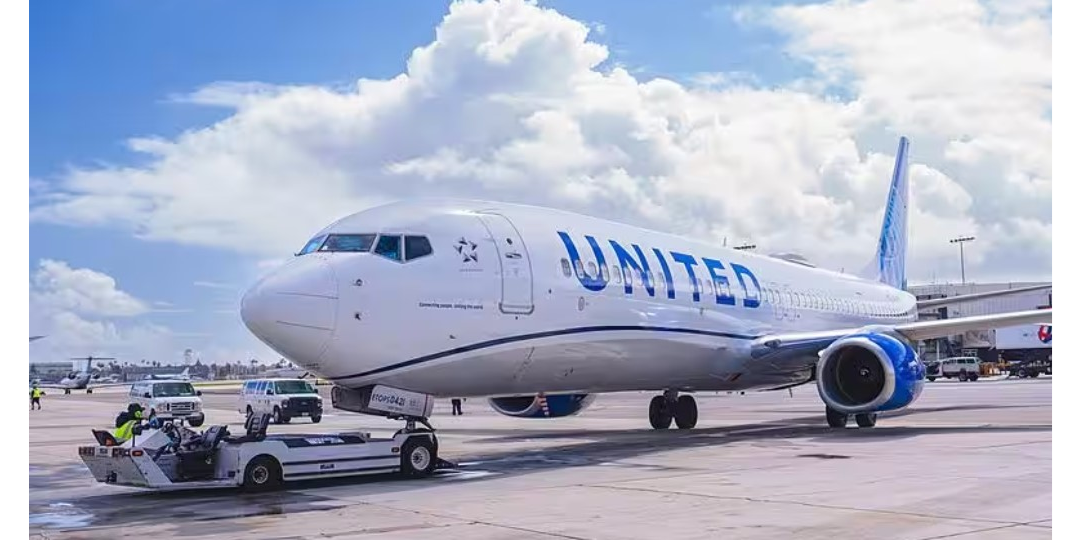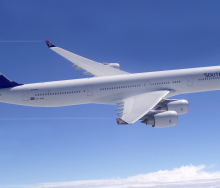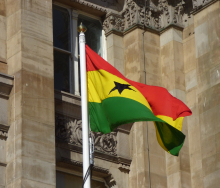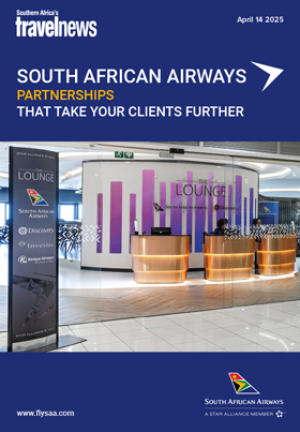When the US Federal Aviation Administration (FAA) announced it would re-evaluate United Airlines’ safety compliance at the end of March, it sent the airline’s shares plummeting by 6%.
United has seen a number of incidents over the past month alone. March 7 saw a UA Boeing return to Houston and make an emergency landing due to an engine fire. Another Boeing experienced a runway excursion on March 8 at Houston Airport. On the same day, a UA Boeing lost a tyre on take-off. This was followed by an incident that involved a missing external panel on a Boeing flight to Oregon Airport on March 15. Then, on March 28, a flight from Houston to Paris, again involving a Boeing, was diverted to Denver with engine trouble. There were no injuries reported in any of the incidents.
United is the biggest operator of Boeing aircraft in the world, including the 787, 777, 767, 757 and 737 families. So, if the problems that the airline recently experienced were due to Boeing manufacturing faults, United is where the issues would show up first.
It’s expected that this state of affairs could further strain the relationship between United and Boeing, even causing the US carrier to start shopping outside the US for aircraft.
Boeing is currently under scrutiny after several incidents have led the FAA to halt production lines while it inspects some aspects of the manufacturer’s processes. The FAA has also very recently grounded all B737-Max 900s across the US.
United has already voiced its misgivings about delays on Boeing deliveries, which are having a material effect on the forward planning of not only United, but other airlines across the globe. And the uncertainty over certification dates for the Max aircraft is making it impossible to look into the future at all for several airlines invested in these aircraft.
The departure of key executives, including Boeing’s CEO and its Board Chairman have done little to steady the ship.
Now, the FAA wants inspections of all Boeing MAX types for a wiring flaw that could lead to 'loss of control'. And while the manufacturer claims that it is not an immediate ‘safety-of-flight issue’, aviation experts disagree.
Boeing still faces legal and reputational fall-out from two fatal B737MAX-800 crashes five years ago, but it was after the more recent Alaska Airlines incident when a door ‘plug’ panel blew out of a B737MAX-900 mid-air in January this year that the spotlight returned to the manufacturer. That door plug incident was the first of a series that prompted the grounding of those models by the FAA.
US news website cnn.com reported mid-March that the scale of Boeing’s operations is such that the aircraft manufacturer’s troubles are likely to ripple outwards into the US economy.
Boeing represents a significant part of America’s economy and employs more than 140 000 workers around the world, generating tens of billions of US dollars in revenue each quarter.
Boeing’s production delays will play out into the US and the global economy as delayed deliveries, a shortage of aeroplane seats, and a stasis or even a reversal of the benefits that aviation brings into economies the world over.
According to a CNN report, New York Fed analysis said, because of Boeing’s scale and its integration in the domestic production network, production stoppages could “have significant effects on the macroeconomy”. Since Boeing is the single largest US exporter, weaker demand for its aircraft would mean fewer exports, which contribute to GDP growth if they exceed imports — known as ‘nett exports’.
Kathy Bostjancic, chief economist at Nationwide, told CNN that fewer new aircraft coming online meant demand would outstrip capacity. “So that keeps upward pressure on airfares…We have already seen airfares jump the last few months (up by) 3,6% in February.”
Naturally, as events unfold, the reputation of Boeing is at stake. And consumers are starting to ask: “How safe is it really to fly?”
Michael Derchin, a longtime airline analyst told www.afar.com, a travel website, he believes “hysteria” could drive consumers away from flying, although there was no concrete evidence to suggest that mass numbers of fliers are booking away from Boeing models or airlines in general in any way.
William J McGee, senior fellow for aviation and travel at the American Economic Liberties Project is heartened by the strong response from the FAA in its supervision of Boeing. “While you could argue that what happened [to the Alaska Airlines plane] was unforgivable, it’s not an option to let Boeing fail,” he says, pointing out that it’s one of the largest exporters and defence contractors in the US.
Aviation safety experts have emphasised that despite the rare events that draw headlines, air travel is remarkably safe and has become even safer over time due to regulatory reforms and technological advances. They say commercial air travel is now enjoying the safest period in its history.
Meanwhile, during the time that Boeing has been beset by these problems (since 2020), Airbus, its EU rival, is believed to have overtaken it as the world’s largest aircraft manufacturer.
As Boeing’s problems have rolled on and on, the trend is clearly pointing in Airbus’s favour. That could cost US GDP dearly.















